
How the king gave back the treasure-scroll to the fakir, saying, “Take it: we are quit of it.” باز دادن شاه گنجنامه را به آن فقیر کی بگیر ما از سر این برخاستیم
چونک رقعهی گنج پر آشوب را شه مسلم داشت آن مکروب را
When the king handed over to that grief-stricken man the treasure-scroll (which was) fraught with commotion,
گشت آمن او ز خصمان و ز نیش رفت و میپیچید در سودای خویش
He (the fakir) became secure from rivals and annoyance, (so) he went and wrapped himself in his melancholy madness.
یار کرد او عشق درداندیش را کلب لیسد خویش ریش خویش را
He made sad-thoughted Love his friend: a dog licks his own sore himself.
عشق را در پیچش خود یار نیست محرمش در ده یکی دیار نیست
Love hath none to help him in his torment: there is not in the village one inhabitant familiar with him.
نیست از عاشق کسی دیوانهتر عقل از سودای او کورست و کر
None is more mad than the lover, (yet) Reason is blind and deaf to his melancholia,
زآنک این دیوانگی عام نیست طب را ارشاد این احکام نیست
Because this is no common madness: in these cases Medicine cannot give right guidance.
گر طبیبی را رسد زین گون جنون دفتر طب را فرو شوید به خون
If frenzy of this kind overtake a physician, he will wash out (obliterate) the book of Medicine with (tears of) blood.
طب جملهی عقلها منقوش اوست روی جمله دلبران روپوش اوست
The Medicine of all intellects is (but) a picture of him (Love); the faces of all sweethearts are (but) a veil of him.
روی در روی خود آر ای عشقکیش نیست ای مفتون ترا جز خویش خویش
O votary of Love, turn thy face towards thine own face: thou hast no kinsman but thyself, O distraught one.
قبله از دل ساخت آمد در دعا لیس للانسان الا ما سعی
He (the fakir) made a qibla of his heart and began to pray: man hath naught but that for which he laboureth.
پیش از آن کو پاسخی بشنیده بود سالها اندر دعا پیچیده بود
Ere he had heard any answer (to his prayer) he had (already) been engaged in praying for (many) years.
بیاجابت بر دعاها میتنید از کرم لبیک پنهان میشنید
He was always praying intently without (receiving) any (overt) response, (but) he was hearing Labbayka in secret from the (Divine) grace.
چونک بیدف رقص میکرد آن علیل ز اعتماد جود خلاق جلیل
Since that sickly man was always dancing without the tambourine, in reliance upon the bounty of the Almighty Creator,
سوی او نه هاتف و نه پیک بود گوش اومیدش پر از لبیک بود
(Though) neither a heavenly voice nor a (Divine) messenger was (ever) beside him, (yet) the ear of his hope was filled with Labbayka;
بیزبان میگفت اومیدش تعال از دلش میروفت آن دعوت ملال
His hope was always saying, without tongue, “Come!” and that call was sweeping (all) weariness from his heart.
آن کبوتر را که بام آموختست تو مخوان میرانش کان پر دوختست
Do not call the pigeon that has learned (to haunt) the roof: drive it away (if you can), for its wings are stuck (to the roof).
ای ضیاء الحق حسامالدین برانش کز ملاقات تو بر رستست جانش
Do thou, O Radiance of God, Husámu’ddín, drive him (such an one) away (if thou canst), for (’tis) through meeting with thee (that) his spirit has grown up in him.
گر برانی مرغ جانش از گزاف هم بگرد بام تو آرد طواف
If thou unconscionably drive away the bird, his spirit, it will still circle about thy roof.
چینه و نقلش همه بر بام تست پر زنان بر اوج مست دام تست
All its grain and food is on thy roof: (while) flying in the zenith, it is (still) intoxicated with (love for) thy snare.
گر دمی منکر شود دزدانه روح در ادای شکرت ای فتح و فتوح
If for one moment the spirit stealthily (secretly) disbelieve in rendering thanks to thee, O (thou who art bestowing) victory and favour (upon it),
شحنهی عشق مکرر کینهاش طشت آتش مینهد بر سینهاش
Love, the magistrate who exacts vengeance repeatedly, will lay the fiery cauldron (of separation) on its breast,
که بیا سوی مه و بگذر ز گرد شاه عشقت خواند زوتر باز گرد
Saying, “Come to the Moon and leave the dust behind; Love, the King, calls thee: return with all speed!”
گرد این بام و کبوترخانه من چون کبوتر پر زنم مستانه من
I am flying ecstatically, like a pigeon, about this roof and pigeon-house.
جبرئیل عشقم و سدرهم توی من سقیمم عیسی مریم توی
I am Love’s Gabriel, and thou art my Lotus-tree; I am the sick man, and thou art (my) Jesus son of Mary.
جوش ده آن بحر گوهربار را خوش بپرس امروز این بیمار را
Let that pearl-shedding sea (of thine) break into surge: to-day ask kindly after this ailing one.
چون تو آن او شدی بحر آن اوست گرچه این دم نوبت بحران اوست
When thou hast become his, the sea (of spiritual mysteries) is his, even though this is the hour of his crisis.
این خود آن نالهست کو کرد آشکار آنچ پنهانست یا رب زینهار
This (Mathnawí) is only the wailful music that he has uttered; (as for) that which is (kept) hidden (within him), (have) mercy, O Lord!
دو دهان داریم گویا همچو نی یک دهان پنهانست در لبهای وی
We have two vocal mouths, like the reed: one mouth is hidden in his lips.
یک دهان نالان شده سوی شما های هویی در فکنده در هوا
One mouth is wailing unto you: it lets (many) a shrill note fall on the air;
لیک داند هر که او را منظرست که فغان این سری هم زان سرست
But every one who hath insight knows that the lamentation (issuing) at this end is (inspired) from that end.
دمدمهی این نای از دمهای اوست های هوی روح از هیهای اوست
The noise of this reed is from his breaths: the spirit’s outcry is from his outcry.
گر نبودی با لبش نی را سمر نی جهان را پر نکردی از شکر
If the reed had no converse with his lip, the reed would not fill the world with (music sweet as) sugar.
با کی خفتی وز چه پهلو خاستی که چنین پر جوش چون دریاستی
With whom hast thou slept and from what (whose) side hast thou risen, that thou art so full of agitation, like the sea?
یا ابیت عند ربی خواندی در دل دریای آتش راندی
Or hast thou recited (the words of the Prophet), “I pass the night with my Lord,” and plunged into the heart of the sea of fire?
نعرهی یا نار کونی باردا عصمت جان تو گشت ای مقتدا
The shout (of God), “O fire, be cool,” became a protection to thy spirit, O exemplar (for all).
ای ضیاء الحق حسام دین و دل کی توان اندود خورشیدی به گل
O Radiance of God, Husám (Sword) religious and spiritual, how can a sun be daubed over with clay?
قصد کردستند این گلپارهها که بپوشانند خورشید ترا
These lumps of clay (thy detractors) attempted (in vain) to cover up thy sun.
در دل که لعلها دلال تست باغها از خنده مالامال تست
The rubies in the mountain’s heart are brokers (advertisers) of thee; the orchards in (their) laughter (full-blown beauty) are filled to the brim with thee.
محرم مردیت را کو رستمی تا ز صد خرمن یکی جو گفتمی
For one familiar (as I am) with thy manhood, where is a Rustam that I might tell (him) a single barley-corn (thereof) out of (thy) hundred stacks?
چون بخواهم کز سرت آهی کنم چون علی سر را فرو چاهی کنم
When I wish to sigh forth thy secret, like ‘Alí I put my head down into a well.
چونک اخوان را دل کینهورست یوسفم را قعر چه اولیترست
Since his brethren have vindictive hearts, the bottom of the well is (the) best (place) for my Joseph.
مست گشتم خویش بر غوغا زنم چه چه باشد خیمه بر صحرا زنم
I have become intoxicated, I will set about making a row: what of the well? I will pitch my tent in the open plain.
بر کف من نه شراب آتشین وانگه آن کر و فر مستانه بین
Put the fiery wine in my hand, and then behold the pomp and glory that is enjoyed by the drunken!
منتظر گو باش بی گنج آن فقیر زآنک ما غرقیم این دم در عصیر
Bid the fakir wait (though he is still) without the treasure, for at this moment we are drowned in the syrup (of union).
از خدا خواه ای فقیر این دم پناه از من غرقه شده یاری مخواه
Now, O fakir, seek refuge with God: do not seek help from me who am drowned;
که مرا پروای آن اسناد نیست از خود و از ریش خویشم یاد نیست
For I have no concern with lending support (to you): I have no recollection of myself and my own beard.
باد سبلت کی بگنجد و آب رو در شرابی که نگنجد تار مو
How should there be room for wind of the moustache (self-assertion) and water of the face (personal reputation) in the wine in which there is no room for a single hair (of self-existence)?
در ده ای ساقی یکی رطلی گران خواجه را از ریش و سبلت وا رهان
Hand (him) a heavy (large) goblet, O cup-bearer: deliver the Khwája from his beard and moustache.
نخوتش بر ما سبالی میزند لیک ریش از رشک ما بر میکند
His arrogance is (contemptuously) curling a moustache at us, but he is (really) tearing out his beard in envy of us.
مات او و مات او و مات او که همیدانیم تزویرات او
(He is) mated by Him (God), mated by Him, mated by Him, for we are acquainted with his impostures.
از پس صد سال آنچ آید ازو پیر میبیند معین مو به مو
The Pír is seeing distinctly, hair by hair, what will become of him (the Khwája) after a hundred years.
اندر آیینه چه بیند مرد عام که نبیند پیر اندر خشت خام
What does the common man see in the mirror that the Pír does not see in the crude brick (of iron)?
آنچ لحیانی به خانهی خود ندید هست بر کوسه یکایک آن پدید
That which the bushy-bearded man never saw in his own house is apparent at once to him who has but a few hairs on his chin.
رو به دریایی که ماهیزادهای همچو خس در ریش چون افتادهای
Go to the Sea of whose fish thou art born: how hast thou fallen, like rubbish, into the beard?
خس نهای دور از تو رشک گوهری در میان موج و بحر اولیتری
Thou art not rubbish far be it from thee! Thou art an object of envy to the pearl: thou hast the best right (to dwell) amidst the waves and the sea.
بحر وحدانست جفت و زوج نیست گوهر و ماهیش غیر موج نیست
’Tis the Sea of Unity: there is no fellow or consort: its pearls and fishes are not other than its waves.
ای محال و ای محال اشراک او دور از آن دریا و موج پاک او
Oh, absurd, absurd to make (aught) its partner. Far be it from that Sea and its pure waves!
نیست اندر بحر شرک و پیچ پیچ لیک با احول چه گویم هیچ هیچ
In the Sea there is no partnership or perplexity; but what can I say to him that sees double? Nothing, nothing.
چونک جفت احولانیم ای شمن لازم آید مشرکانه دم زدن
Since we are the mates of those who see double, O idolater, ’tis necessary to speak in the fashion of him who attributes a partner (to God).
آن یکیی زان سوی وصفست و حال جز دوی ناید به میدان مقال
That Unity is beyond description and condition: nothing comes into the arena (domain) of speech except duality.
یا چو احول این دوی را نوش کن یا دهان بر دوز و خوش خاموش کن
Either, like the double-seeing man, drink in (absorb and be satisfied with) this duality, or close your mouth and be very silent;
یا به نوبت گه سکوت و گه کلام احولانه طبل میزن والسلام
Or (do both) in turns, now silence, now speech: (in the company of the uninitiated) beat the drum like him that sees double, and peace (be with you)!
چون ببینی محرمی گو سر جان گل ببینی نعره زن چون بلبلان
When you see a confidant, declare the mystery of the Spirit: (if) you see the rose, sing loud like nightingales.
چون ببینی مشک پر مکر و مجاز لب ببند و خویشتن را خنب ساز
(But) when you see (one who resembles) a water-skin full of deceit and falsehood, shut your lips and make yourself like a (dry-lipped) jar;
دشمن آبست پیش او مجنب ورنه سنگ جهل او بشکست خنب
(For) he is an enemy to the water (of spiritual life): in his presence do not move (your lips), else the stone of his ignorance breaks the jar.
با سیاستهای جاهل صبر کن خوش مدارا کن به عقل من لدن
Patiently endure the punishments inflicted by the ignorant man: give him fair words and dissemble (towards him) with the reason that is divinely inspired.
صبر با نااهل اهلان را جلاست صبر صافی میکند هر جا دلیست
Patience (shown) to the unworthy is the means of polishing (purifying) the worthy: wherever a heart exists, patience purifies it.
آتش نمرود ابراهیم را صفوت آیینه آمد در جلا
The fire of Nimrod was the means of making pure (resplendent) the (inward) mirror of Abraham in (the process of) polishing.
جور کفر نوحیان و صبر نوح نوح را شد صیقل مرآت روح
The iniquitous unbelief of Noah’s people and the patience of Noah were instrumental in polishing the mirror of Noah’s spirit.
Special Offers
by: Reza about (category: Masnavi, Persian Poetry)



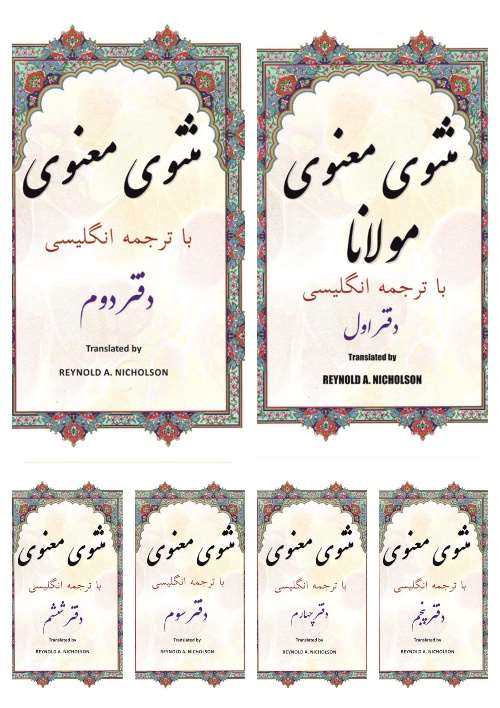
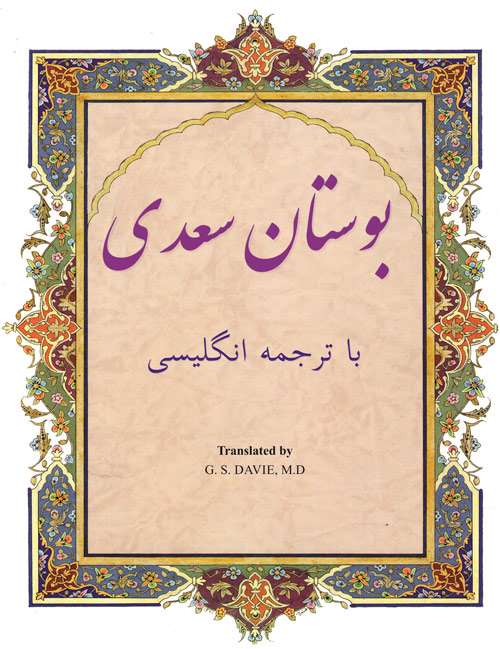
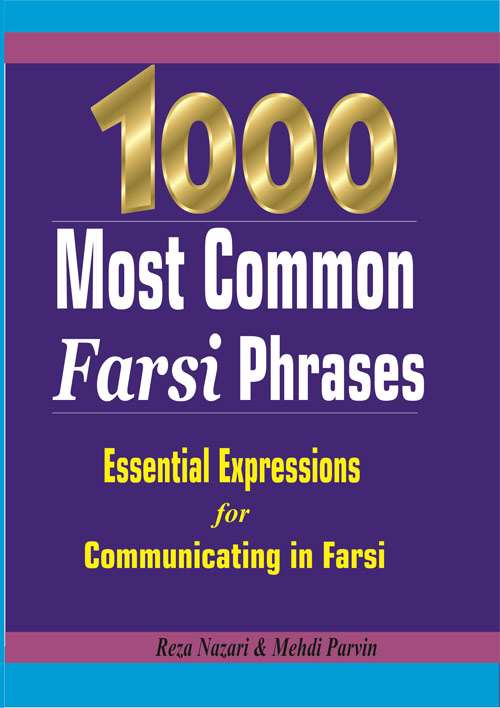
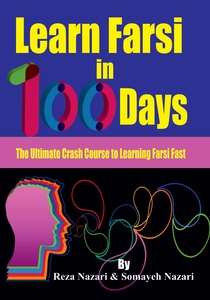






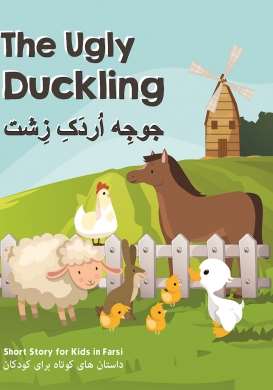
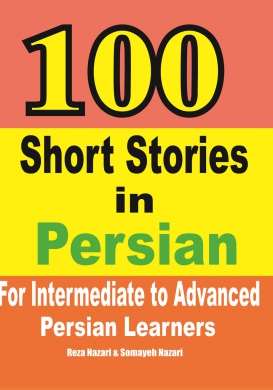

What people say about "How the king gave back the treasure-scroll"?
No one replied yet.